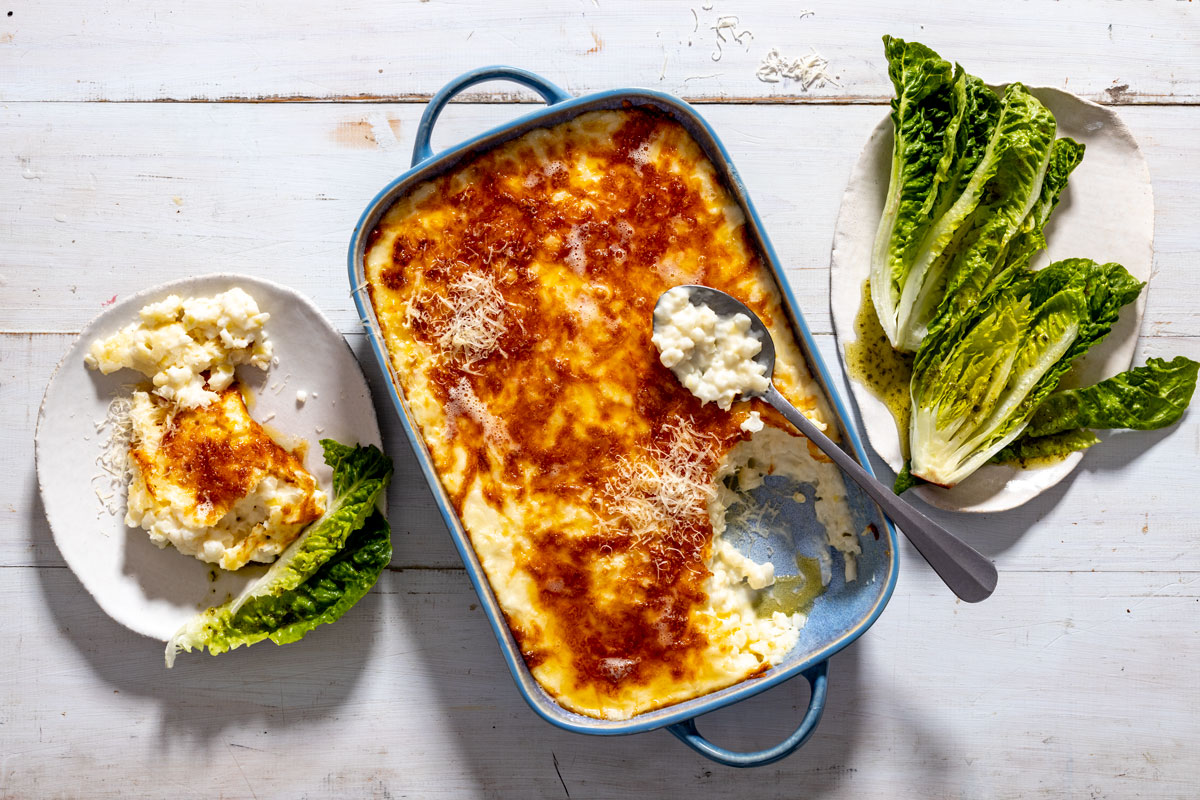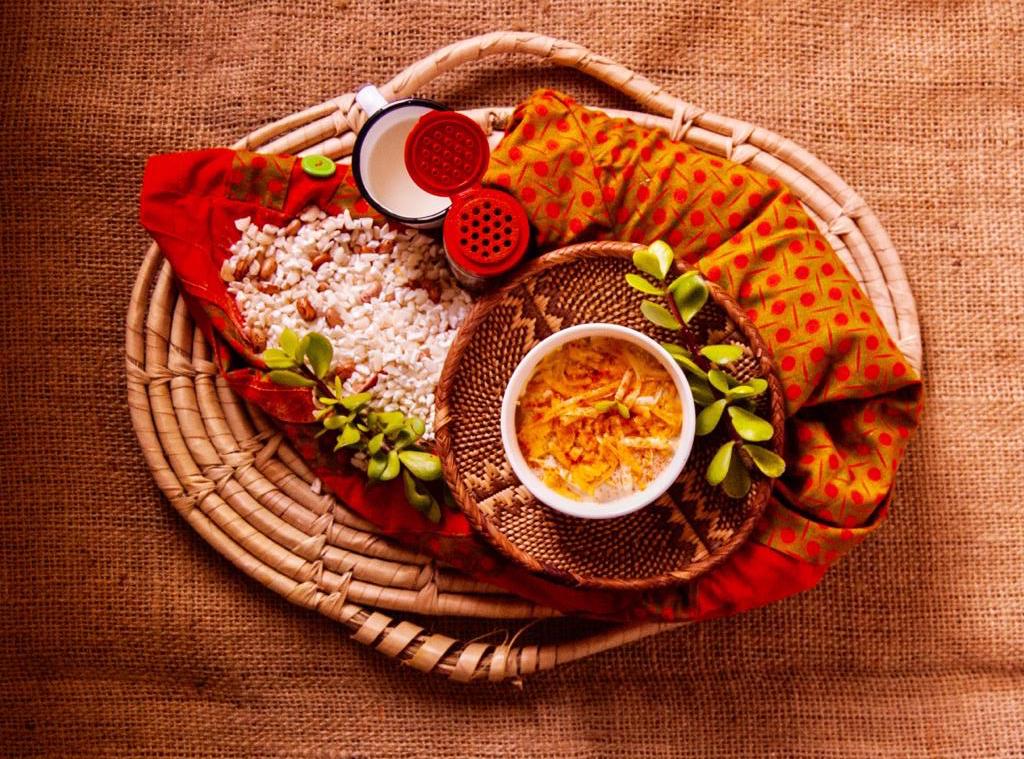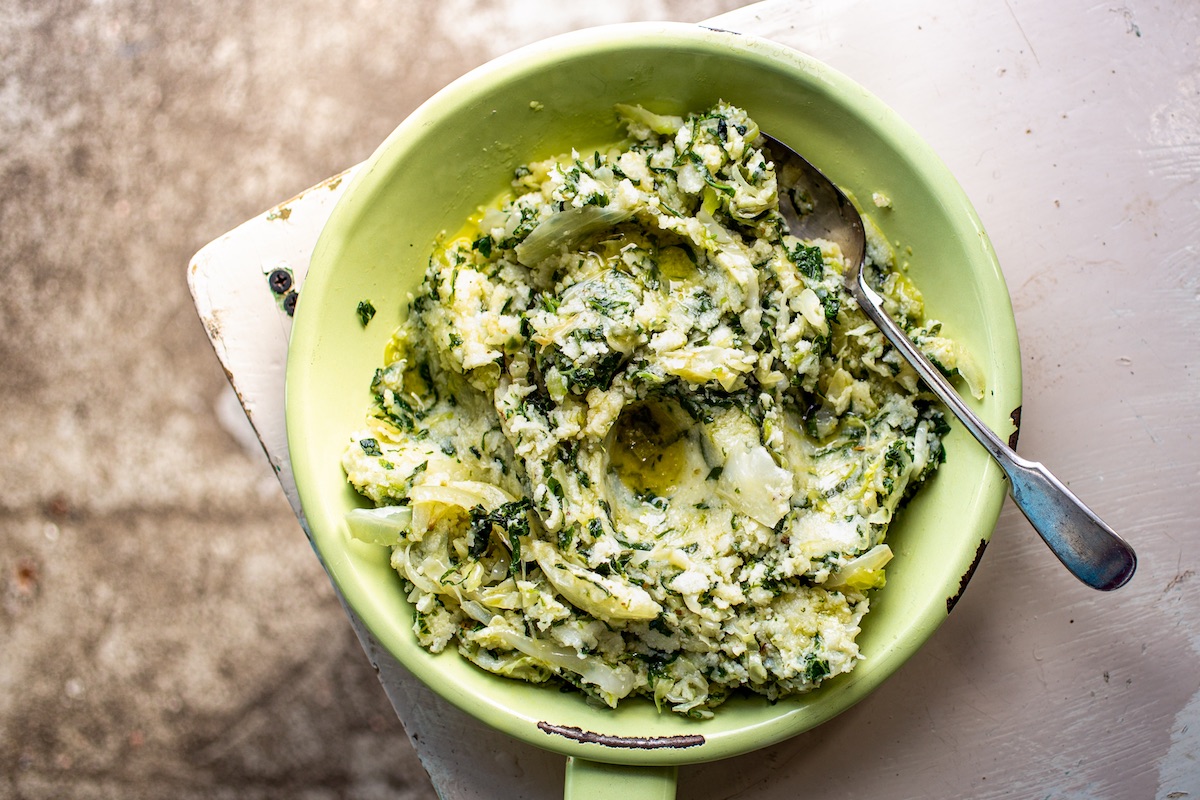The heritage series: Meet Nolukhanyo Dube-Cele of Seven Colours Eatery
Honouring the rich heritage of her mother and grandmothers, Nolukhanyo Dube-Cele champions their classic home-cooking at her restaurant, Seven Colours Eatery, where she serves South African soul food and locally produced craft beverages.
Nolukhanyo Dube-Cele is the founder of Seven Colours Eatery, her restaurant at the V&A Waterfront in Cape Town that is dedicated to celebrating all aspects of South African culture – but especially comforting, hearty South African soul food and locally produced craft beverages. Nolukhanyo utilises her platform to honour the legacy of cooks like her mother and grandmothers, using Seven Colours Eatery to champion their classic home-cooking principles.
“One of my fondest childhood memories is of Sunday mornings before going to church, feeling hungry and already smelling the food being prepared for lunch,” she says. The spicy, fatty, sweet aromas would torment Nolukhanyo as she waited for what felt like hours for her mom to serve lunch. Every Sunday the family would gather, the table heaving under the weight of potato salad, pickled beetroot, fried chicken, rice studded with vegetables and chakalaka – some of the staples making up the “seven colours” that made this everyday occasion so special.
View this post on Instagram
Variations of the plate would also be served at weddings, funerals and imisebenzi (traditional ceremonies), at which a community of women, often ooMakoti, would convene to prepare the day’s feast. “When it was time to eat, the women would dish up a plate of food for each person and serve according to status, with the kids always served last. As the plates came out, I would cross my fingers, hoping all the dishes made it to my plate, as there are always so many people at our traditional events. During and after each meal, comments such as ‘iBimnandi ibeetroot, bayenze njani? Ugalelentoni?’ (‘The beetroot was delicious; how did they prepare it? What did they add?’) would fly around as everyone savoured the food.”
View this post on Instagram
What significance does Heritage Day have for you, and how does your heritage influence your approach to cooking?
I am uMaRadebe, Umthimkhulu, Ndlebe'zintle Zombini, Bhungane with origins from a rural Eastern Cape village called eCala. I moved to Cape Town because of my love for food, beverage and people. Heritage Day is an amazing concept, allowing us to celebrate the diverse cultures that make up our country. I must admit that it has been a bittersweet experience at times. As a foodie, I’ve always felt that my cultural foods were not celebrated enough. This is a result of a lack of knowledge and diverse journalism in the food space, and we still have a long way to go. Just like most public holidays, Heritage Day often benefits large retail and corporate businesses more than the people whose stories are being told. It’s crucial that we honour and support the original storytellers, ensuring they benefit from their own cultural narratives.

Find the recipe for Nolukhanyo's umngqusho ongqimbilili (Baked creamy cheesy samp) here.
That said, I’m pleased to see a few things changing, and it makes me happy to witness this progress. We’re becoming more aware and seeing more food stories and cultural ways that speak to the majority of South Africans. Personally, for my business, this shift is incredible. It gives establishments like ours more traction and provides platforms that highlight the work we do. As for our menu, we don’t make any changes specifically for Heritage Day because we serve heritage food every day.
Which South African foods evoke the strongest sense of nostalgia for you?
For me, it’s not just a dish but an entire experience – the seven colours plate. During the week, we ate simpler dishes, but come Sunday, we were in for something special: stews, roasts and a variety of salads. You’d think I’d tire of the seven colours plate since we serve it daily at the restaurant, but it always hits differently when my mom or someone else serves me this meal, especially after I’ve been away from home for months or when I’m feeling down.

ALSO READ: The chef behind the cheesy samp dish Cape Town can’t get enough of
Any favourite chefs or restaurants? How have they shaped your cooking practice?
Unlike many chefs, my inspiration often comes from South African home cooks. Whenever I cook, I hear my mom’s voice in my ear saying, “ncasanisa”, which means to season to taste. I also hear my granny’s complaint, “kuyabanda ukutya”, meaning the food lacks soul. And then there's my aunt, who would say, “kujikele emqolo okukutya”, meaning that there was far too little food. So, when it comes to the food I make, it must always be tasty, soulful and generous.
Can you share a particular ingredient that connects you to your heritage?
Umbhona (maize) was a staple ingredient throughout my childhood. I have fond memories of my family preparing the soil, planting the maize, and watching it grow until harvest time. Some of it would be eaten boiled, and other times we would grill it over an open fire (ukoja). We would also place the maize on the roof or in a storeroom to dry. Once dry, it would be converted into a mielie meal using a stone grinder (ukukuguba) or crushed (ukumngqusha) to produce samp. This ingredient was the base for many of our traditional staple dishes, such as isophi yekhobe, umngqusho onembotyi and umfino.
Find the recipe for umfino here.
How do you balance preserving traditional recipes with modern cooking innovations?
I have had the privilege of cooking for a diverse set of people – locals who miss nostalgic foods, internationals seeking authentic South African cuisine, and adventurous foodies. These different audiences help me strike the balance between tradition and innovation. For example, when serving umfino to someone from the Eastern Cape who misses home, I would use the original recipe but might add a few herbs to give it my signature touch. For foodies, I might shape umfino into small bite-sized canapés, perhaps crumbed and fried for added texture, and serve them with a dip incorporating amasi.
In what ways do you think food can help celebrate and preserve heritage?
Every dish tells a story, which makes chefs natural storytellers. By incorporating traditional dishes into modern menus, we celebrate our food and the stories that come with it.
Seven Colours Eatery will celebrate Heritage Day, 24 September 2024, with a special collaboration. It will partner with Tolokazi, a multi-award-winning beer created by Apiwe Nxusani-Mawela. On the day, MamTolo will be brewing beer, and the restaurant will serve its hallmark seven colours plate with live music to enhance the celebration.
View this post on Instagram
Seven Colours Eatery, Battery Park@Waterfront, 3 Dock Rd, Victoria & Alfred Waterfront, Cape Town.
Tel: 087 265 8762; sevencolourseatery.co.za
Follow @noloodee and @sevencolours_eatery on Instagram.




Comments